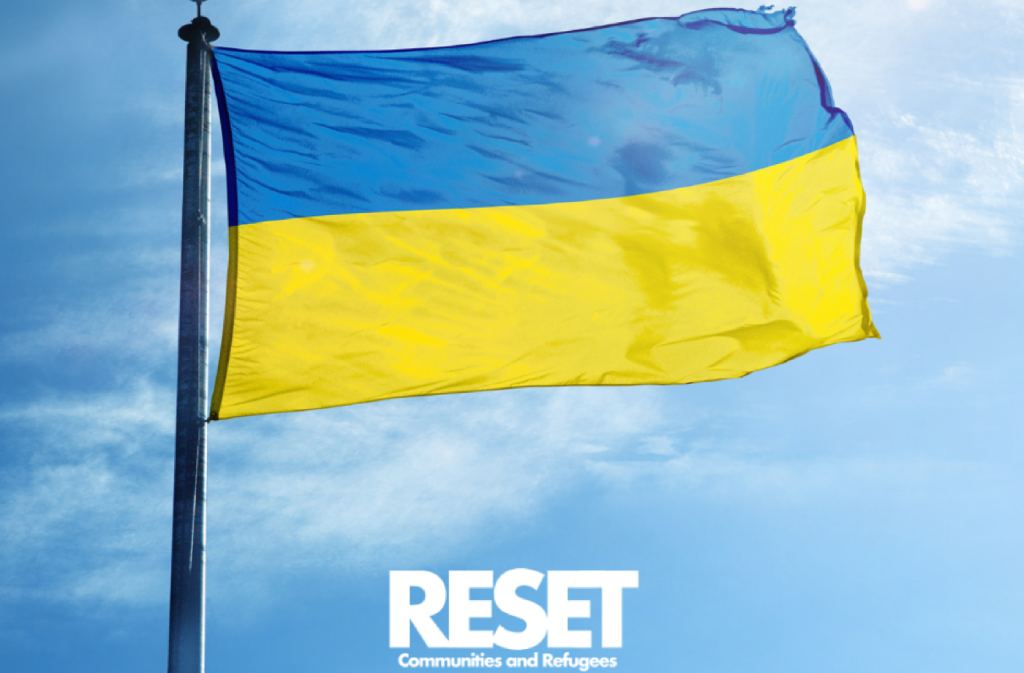
Homes for Ukraine – learning from the sponsors
In this second post from our CEO, Kate, on the Homes for Ukraine programme, she shares what we’re learning from speaking to sponsors who are getting involved with Homes for Ukraine.

In this second post from our CEO, Kate, on the Homes for Ukraine programme, she shares what we’re learning from speaking to sponsors who are getting involved with Homes for Ukraine.
We have been blown away by the number of people who have expressed an interest in being matched with a Ukrainian refugee. From our years of working in community sponsorship we have seen the generosity of people wanting to help those fleeing conflict and persecution but the response to the war in Ukraine has been another level. That is not so say its without its challenges, in this, my second post on Reset’s matching scheme as part of the Homes for Ukraine programme I want to share our work with potential sponsors to date and what it means for future engagement.
When the Government announced that it would support people to welcome refugees into their homes, we were both excited and concerned; we decided to manage both of these emotions by creating our matching scheme with the hope of reducing our concerns, specifically around reducing safeguarding risks.
As organisations such as Refugees at Home and NACCOM know only too well, hosting is an important part of the refugee welcome offer, but it is not for everyone. It takes a special kind of person to open up their home to complete strangers. People who have signed up at the very outset of the programme did so with little information available on what would be expected of them. Some of those we speak to, on finding out what this involves, are removing themselves from the programme. Others have changed their minds on who they can support after finding out more. For this reason, we’ve introduced webinars to ensure people are informed and feel able to make the right decision from them. If you are signed up to our matching service and have not yet received an invitation to attend a webinar, this will be coming to you soon.
Some of the most difficult conversations we’ve had are explaining to people that although their offer is very kind, it’s just not suitable. We’ve had sponsors offering accommodation which is not acceptable from sheds to caravans in the driveway to sofas in the same bedroom as themselves, these temporary solutions are just not appropriate for a six month stay. While we are clear we are telling people directly that this isn’t suitable, we remain concerned that people are able to make matches and sponsor through other routes.
Some of the homes with the most space are based in rural communities, and while we know those communities will be working hard to make their village a place of sanctuary, most refugees want to be in towns and cities with access to jobs and good transport links.
The hardest conversation we’re having is around safer matching. In the same way that we can’t have a refugee hosted in a shed, we think it’s important that lone women and those with young children are matched with women / families.
Reset’s focus is on training and matching, but inevitably issues come up post-match for example, some sponsors have been matched with refugees outside of our service, gone through the visa application process, but then realise that they cannot accommodate the person they have agreed to sponsor and withdraw at this stage.
We have been receiving hundreds of emails each day from sponsors and refugees from outside of our matching service asking for help as they need advice or support; from understanding the visa process, on how to find a school, to requests for casework support. We do respond to these emails, signposting where we can but it’s clear there’s little support or guidance available for those needing help using their own matching routes. We’ll be talking to allies and Government about these gaps on support and re-matching.
We’re hearing from groups of sponsors in local areas who are getting together to offer multiple sponsorship opportunities for linked groups of people, and I’m really excited to hear more about what might be possible on phase two of the government’s plans for Homes for Ukraine where organisations will be able to sponsor refugees and provide wraparound support including jobs.
We’re hearing loud and clear that while people want to be matched in the safest way possible, they also want a speedy approach so we’re working on how to use our learning from this pilot phase to make this happen. More on that in my next post.
People who have never thought about refugee welcome have been activated by the war in Ukraine; some of them are hosting but others can’t and we need to help them find a way to play a part in our eco-system. From cooking meals to helping find a school, non-hosts are as vital to community welcome as those who open their homes. We’re looking for more ideas on what people can do to help Ukrainian refugees coming to the UK, if you have any ideas, please drop me a line.
You can read my previous post on what we’re learning from refugees here.
